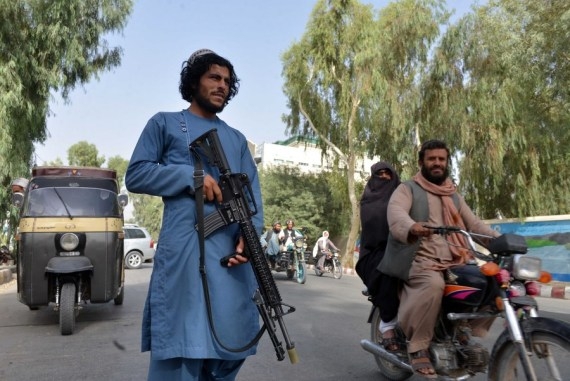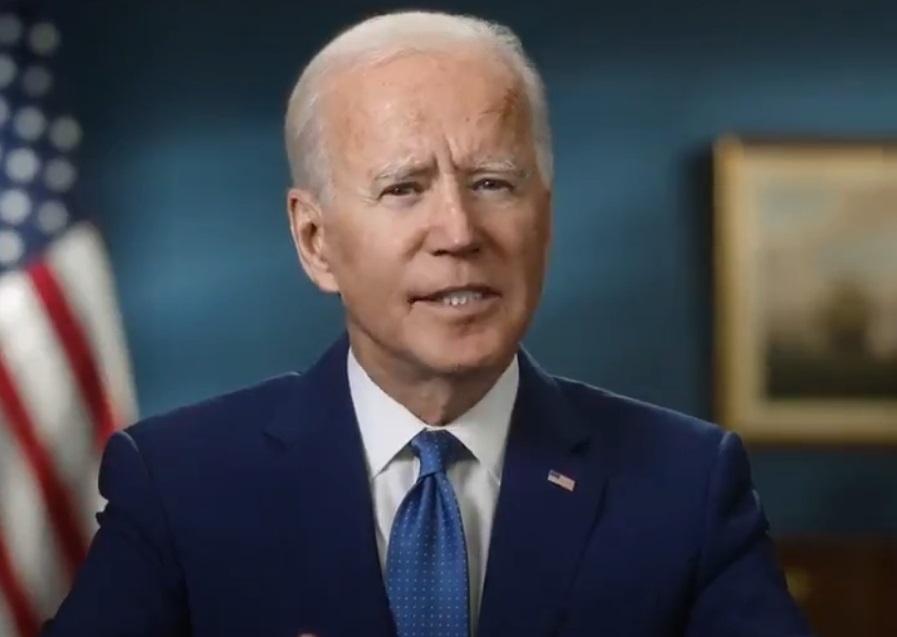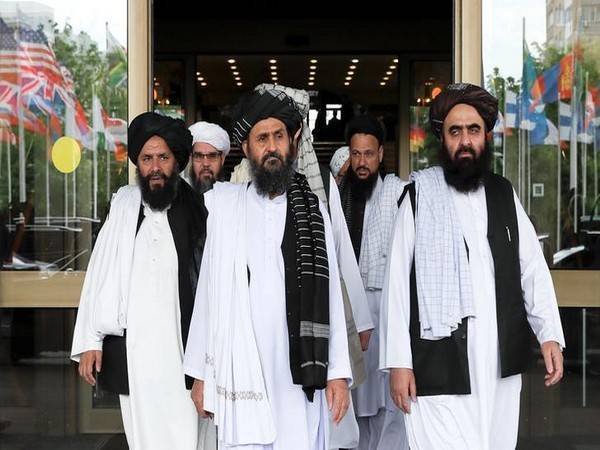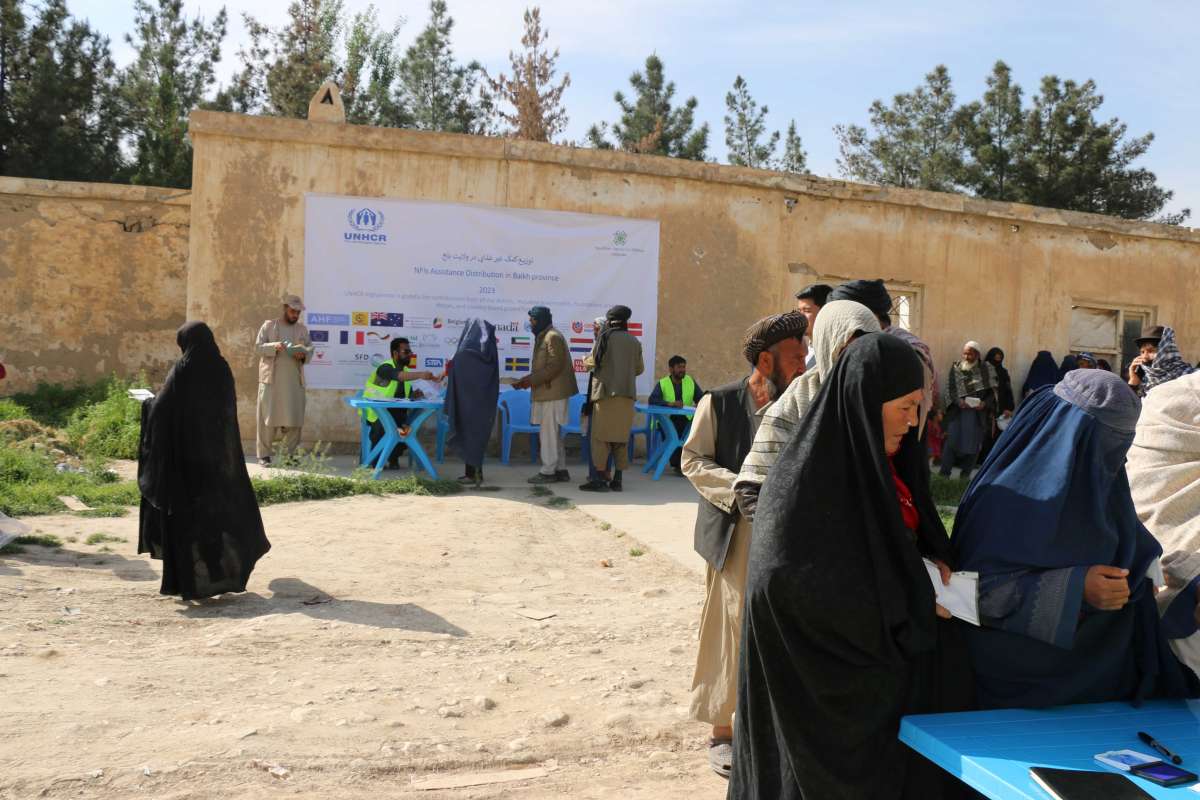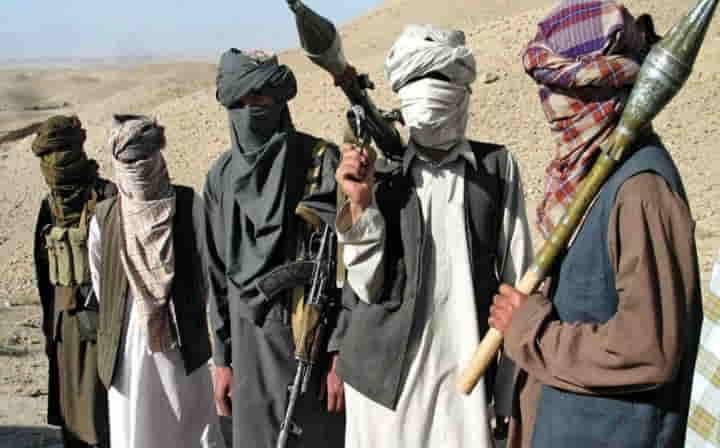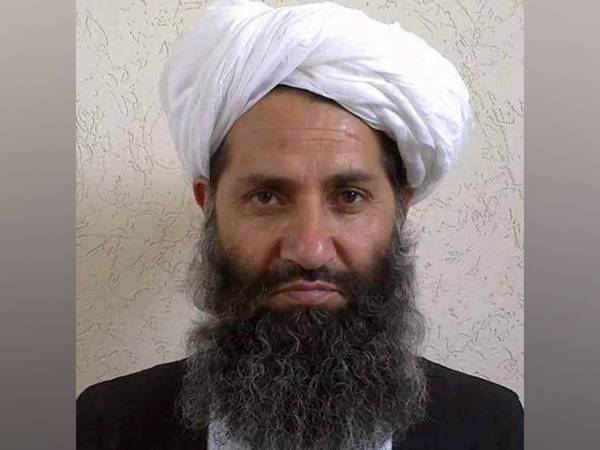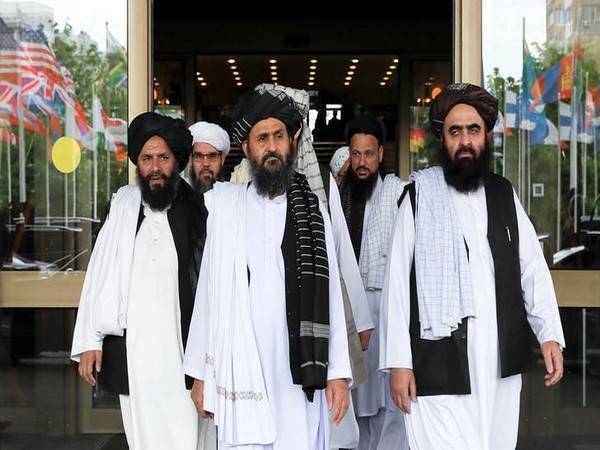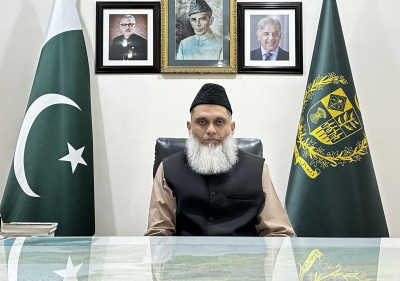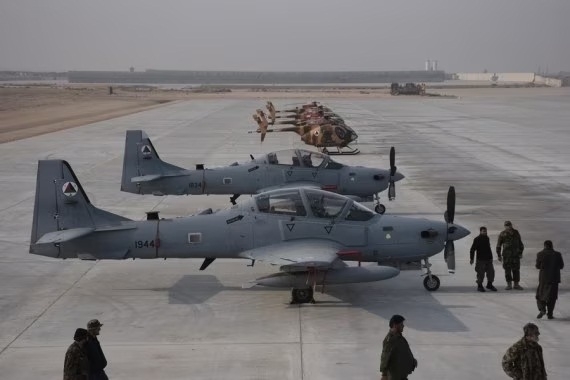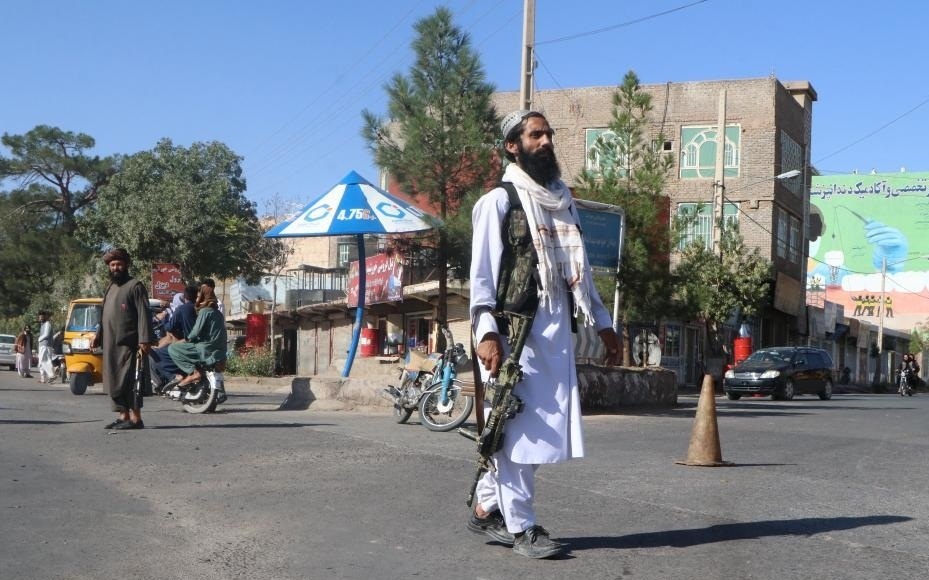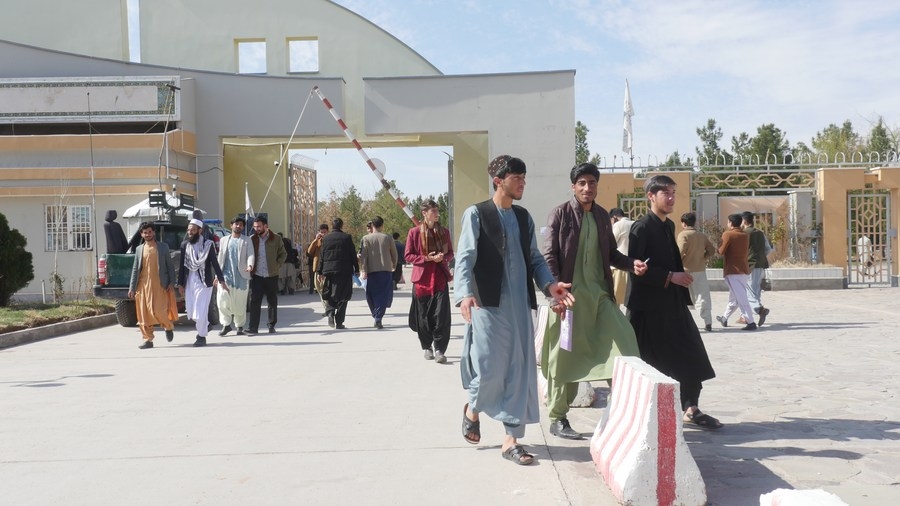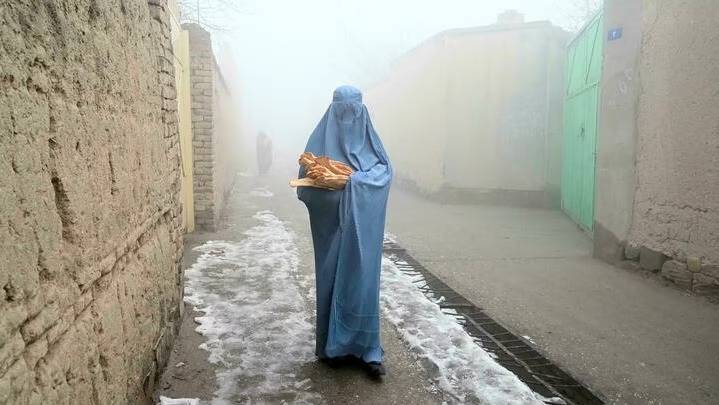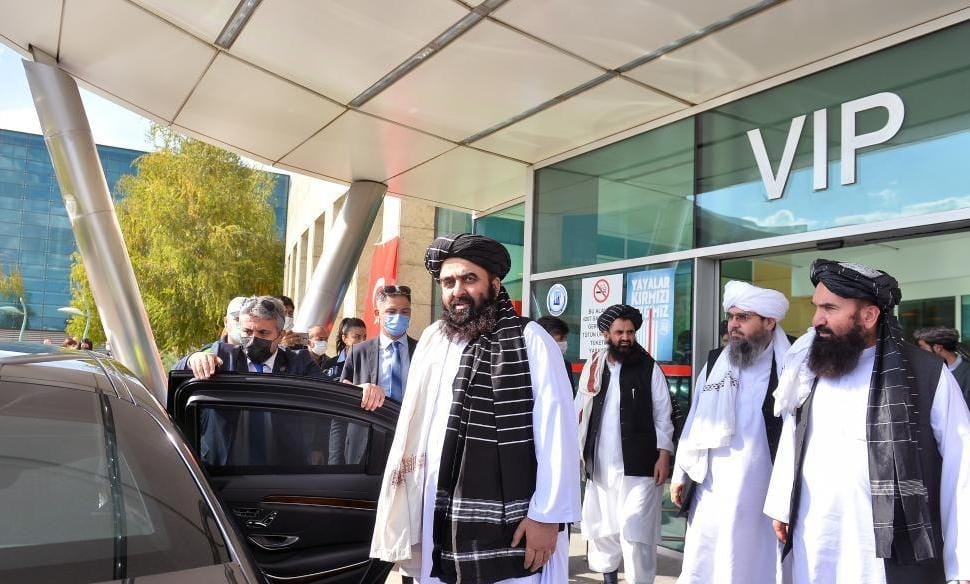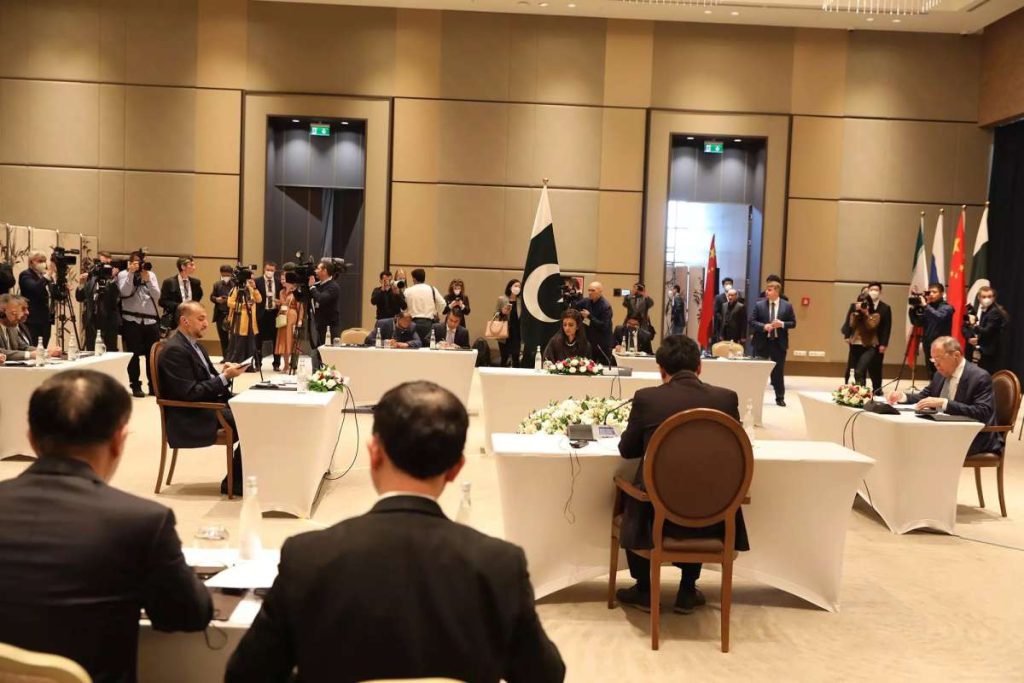Women of Baghlan and Takhar provinces in Afghanistan were under command to not go out in groups during the days of Eid al-Fitr….reports Asian Lite News
In another harsh restriction, the Taliban has prohibited women from attending Eid celebrations in two provinces of Afghanistan, Khaama Press reported.
The instructions came from the de-facto authorities for the women of Baghlan and Takhar provinces of the country on Friday to not go out in groups during the days of Eid al-Fitr. Only these two provinces in Afghanistan have up to now been under command to follow the instructions.
In the Herat region of Afghanistan, the Taliban authorities earlier this month forbade families and women from dining in establishments with gardens and outdoor space, reported Khaama Press.
The authorities said that gender mingling and not donning a headscarf (Hijab) were the reasons for the curbs.
Facing decades-long conflict, Afghanistan grapples with numerous challenges including a food shortage as foreign governments are cutting development funding and imposing sanctions, in large part due to the Taliban’s restrictions on women.
Despite widespread condemnation, there are still restrictions on how many women can work for the UN, including a ban on girls’ higher education beyond the sixth grade, the Afghan news agency reported.
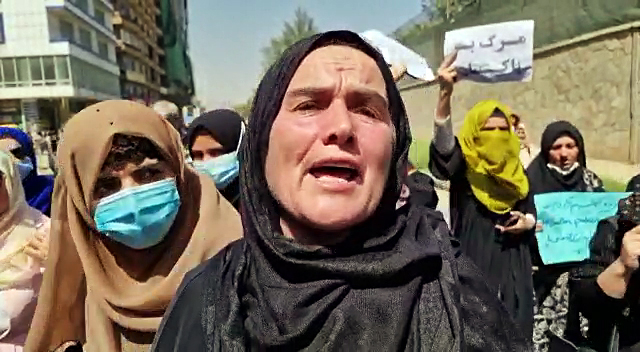
Women face unending challenges
Afghanistan’s women have faced numerous challenges since the Taliban returned to power in 2021. Girls and women in the war-torn country have no access to education, employment and public spaces.
Despite all odds, the spirit of Afghan women remains high and they are trying to push on, proving to be a shining example of self-reliance. Many like 22-year-old Sofia logs in for an online English course run by one of a growing number of educational institutes. These institutes are trying to reach Afghanistan’s girls and women who have been prevented from going to school due to the Taliban administration’s restrictions.
Sofia a Student from Kabul while expressed the problems that women in Afghanistan actually need to face for their education and said that “actually in this situation that we are banned from going school, university or (from attending) any type of courses, it is a good opportunity for girls, for women in Afghanistan to continue their education, their studies in online courses, so this is why I want to continue my studies in online courses. This is my dream; this is my goal to finish my studying whatever happens in Afghanistan”.
Girls and women desperate to get an education have since flooded online schools like Sofia’s online school, Rumi Academy, with applications.
The school says it has seen its enrolment of mostly women rise from about 50 students to more than 500 after the Taliban took over. But like anyone else in Afghanistan who uses the internet, online students are hampered by power cuts and cripplingly slow internet speeds.
Anita Sherza the founder of Rumi Academy and online education “The major concern I have regarding our activity is power outages and internet connection, if one-day power or the internet is being completely disconnected in Afghanistan, it would create a serious problem for us, and this is one the major concerns I have always had”.
Afghan women are also trying to be self-reliant by engaging themselves in business activities. They virtually joined an exhibition in Dubai to promote their carpets, jewellery, dried fruit and other handmade goods as part of a push to access international markets.
The three-day exhibition supported by the United Nations Development Program included 26 Afghan female-run businesses. Due to the difficulty of getting a visa and travel restrictions, the business owners joined via video link from Kabul.
Ziagul Jahani an Afghan businesswoman from Parwan province said that “We lost our hope when Afghanistan collapsed, we thought Afghanistan would go back 20 years, but Afghan women are fighters, we will struggle and fight. We will never allow for the loss of our businesses to happen or face stagnation, we have always fought and will continue to fight.
Facing decades-long conflict, Afghanistan grapples with numerous challenges including a food shortage as foreign governments are cutting development funding and imposing sanctions, in large part due to the Taliban’s restrictions on women.
The World Food Programme is currently short of 93 million USD, causing it to reduce rations to 4 million Afghans to 50 per cent of what they need. Another 9 million people will lose access to food aid entirely in April if it does not receive funding commitments in the coming weeks. Amid all confrontations, the Afghans have not relinquished their spirit and they are hopeful for better days ahead. (ANI)


